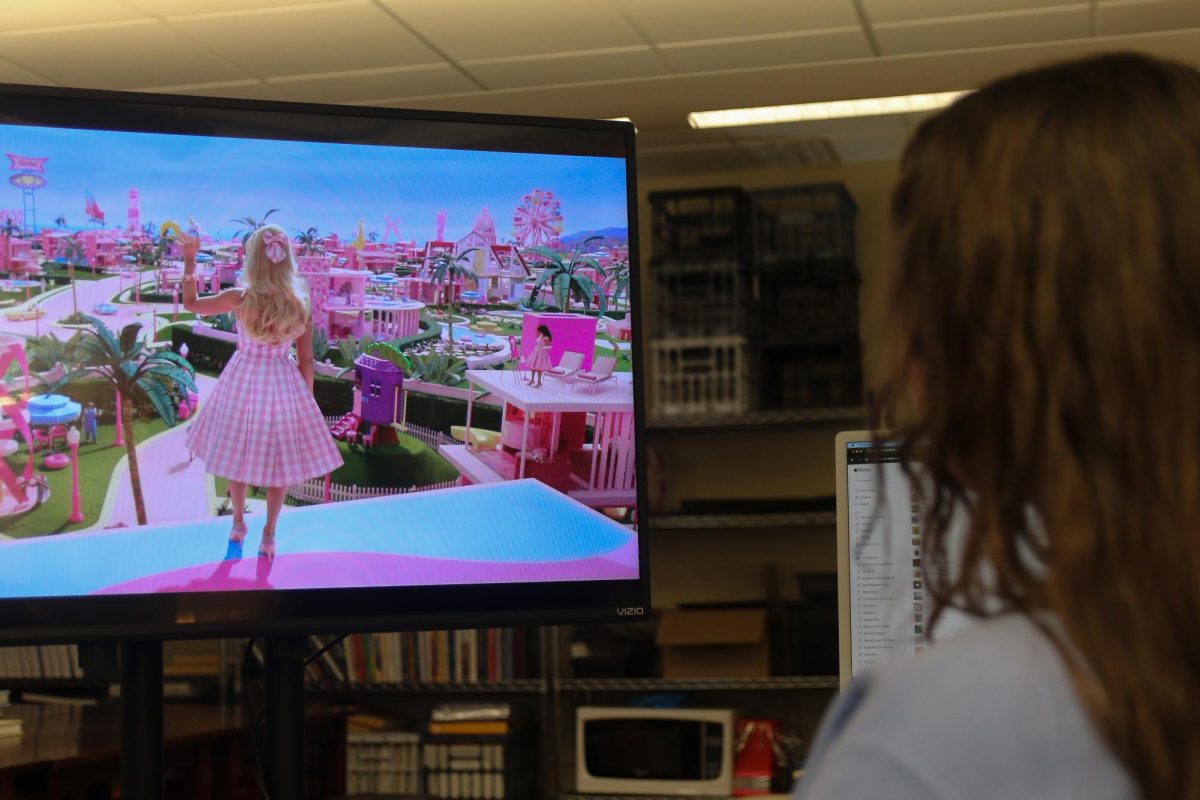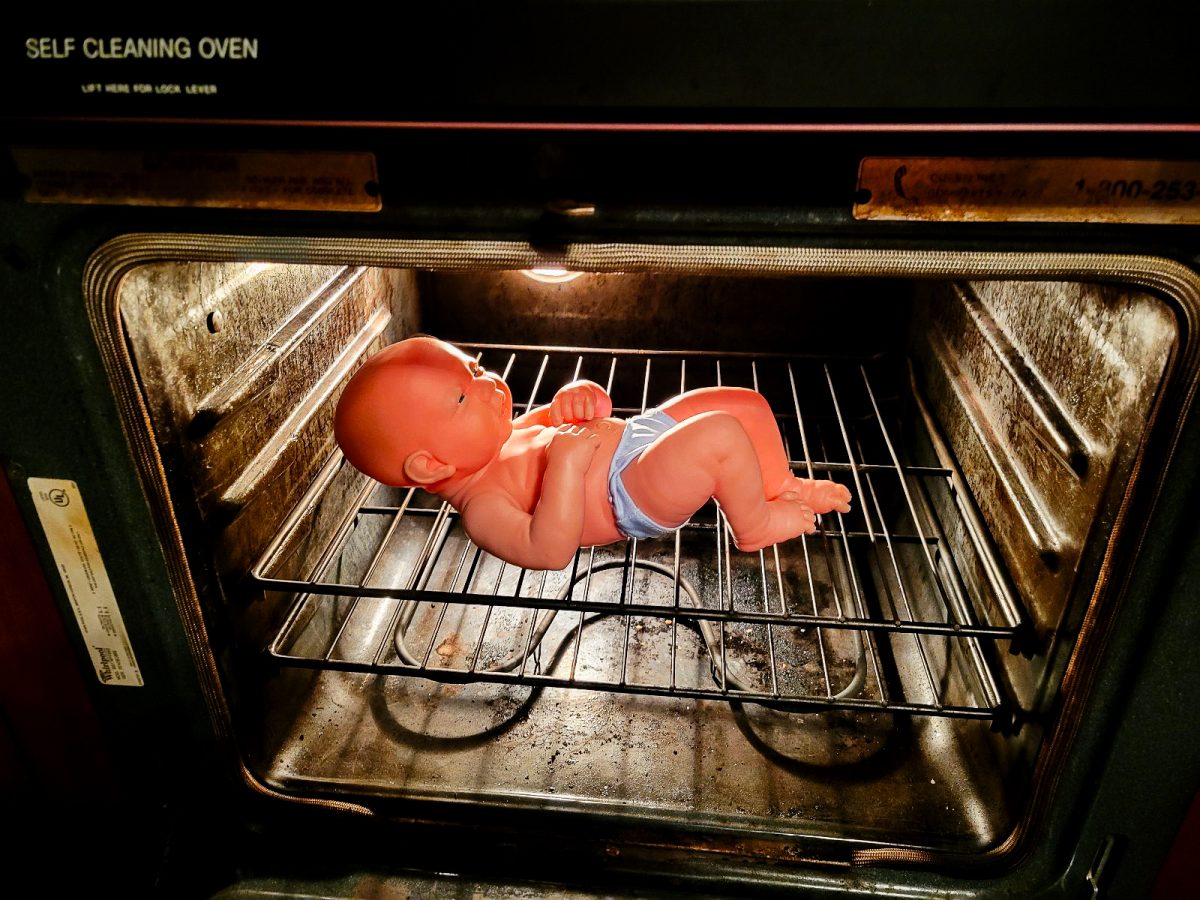“Men hate women. It’s the only thing we all agree on.” This line comes directly from a 2023 film that has grossed over 1.34 billion dollars worldwide. Can you figure out the film? I’ll give you a hint: its intended audience is mothers and daughters aged 10 and up. Did you figure it out? The answer may be shocking. This is a line from the Barbie movie.
This is not exactly the type of line you would expect to appear in a movie about plastic dolls. Is this what we want young girls to think about the world? Because unfortunately if Barbie tells it to them, they are likely to believe it.
While culturally significant, the Barbie movie ultimately raised more problems than it solves, vilifying men, and presenting a false image of the patriarchy, ultimately leaving young girls confused about their place in the world.
In the opening scenes of the movie, we learn that the fictional world “Barbieland” is run exclusively by women. The entire government is composed of women. Nobel Prize winners are all, you guessed it, women as well. So where are the men? The “Kens” (as they are called) are ultimately found doing other odd or nonessential jobs. They are portrayed as passive, docile, unintelligent.
When Barbie travels into the real world she notices a difference and remarks that, “Basically everything that men do in your world, women do in ours.” At first glance, this seems like a harmless and true statement. The women do run everything in Barbieland, but do the men run the real world? In the movie it sure is made to seem like this. In fact, when Barbie sees the board of Mattel she asks where all of the women are since the whole board is men.
This depiction is entirely inaccurate. Of the 78 years that Mattel has been in business it has had a woman CEO for around 38 years of that. This means that since its founding, almost 50% of the time it has been run by a woman (not to mention founded by a woman). This is a very different picture than what is painted to us in the movie with the idea that “men run everything”. To go even farther, 42% of businesses in the US are run by women CEOs, despite the fact that women on average spend less time in the work-world than men to raise children.
So what is the danger in that? The danger first lies in the intended audience, which as I mentioned previously is mothers and daughters. Giving this message to 8-13 year old girls is misleading at best and ultimately indoctrination at its worst. Telling young girls that when they enter the real world, they will find nothing but a malicious patriarchy. Further, telling them that the only way to then escape this world is to create a pretend world where men are subservient. However, on an industrial scale, will do nothing but put them on the defensive for an arguably non-existent problem. This fear of discrimination, and assumption of adversity will inevitably limit girls from being able to collaborate with their male counterparts. Ultimately, this new wave of feminism will not be beneficial but instead cause further division and distrust between men and women both in the work world, and everyday life.
As the movie comes to an end, several things unfold. First, after experiencing the real world Ken decides to bring the patriarchy back to Barbieland. All of the Barbies are in a hypnotic state blindly following the newly empowered Ken’s orders. While attempting to find a solution, Barbie concludes that being a woman is ultimately “impossible”.
Once again, I can only pause here to think about the way that this will impact young girls who look up to and admire Barbie who is now telling them it’s impossible to be a woman. The hopelessness behind the story is truly tragic.
Next, in a dramatic turn of events, the Barbie’s are able to break the spell and put the Ken’s back in their place by reestablishing the entirely women dominated government. However, poor Ken is left sad and purposeless until Barbie reminds him that he must find his way in life without her because ultimately it should not be Ken and Barbie, but the two living separate lives.
This makes me wonder how society would function if we lived according to this advice. After everything the movie explores the only change made to Barbieland is restoring the government back to its matriarchal state. So what was the lesson? Ultimately it is impossible to be a woman, but yet everything should be run by women and men need to live separate lives. Goodbye to any sort of the Judeo-Christian values of western civilization, men are not actually supposed to be around women, in fact they should live lives entirely separate from them. This narrative is not only backwards and confusing but entirely contradictory.
Ultimately, this begs the question, what then is the solution? The movie offers no clear answer as it wraps up with a song titled “What Was I Made For?”. Luckily there is hope for society.
Being a woman is not impossible. It is difficult, but it’s also difficult to be human. Everyone faces challenges, discrimination, discomfort, and hardship at some point in their lives. But these experiences are all unique to the individual. Additionally, men and women should not exist in a dichotomous state. To live like this simply exacerbates the differences between sexes and will cause distrust among all individuals.
Ultimately, individuals were made to feel together, love together, and grow together. This is what humanity was made for. Not Barbieland, which needs to be seen for what it is, a fantasy of ideas that should stay in a plastic box.









